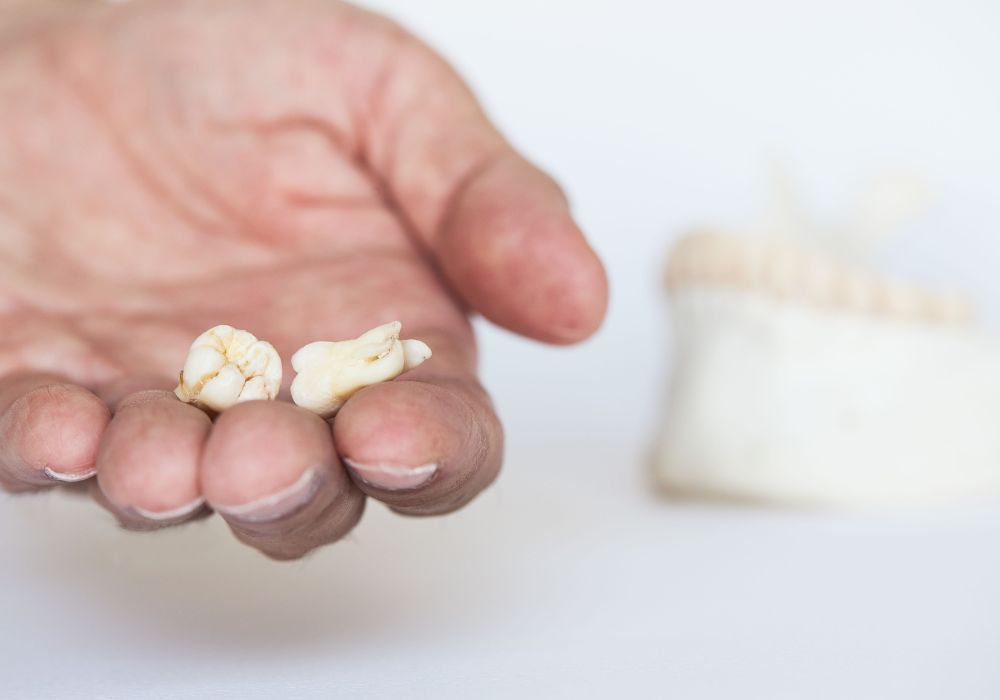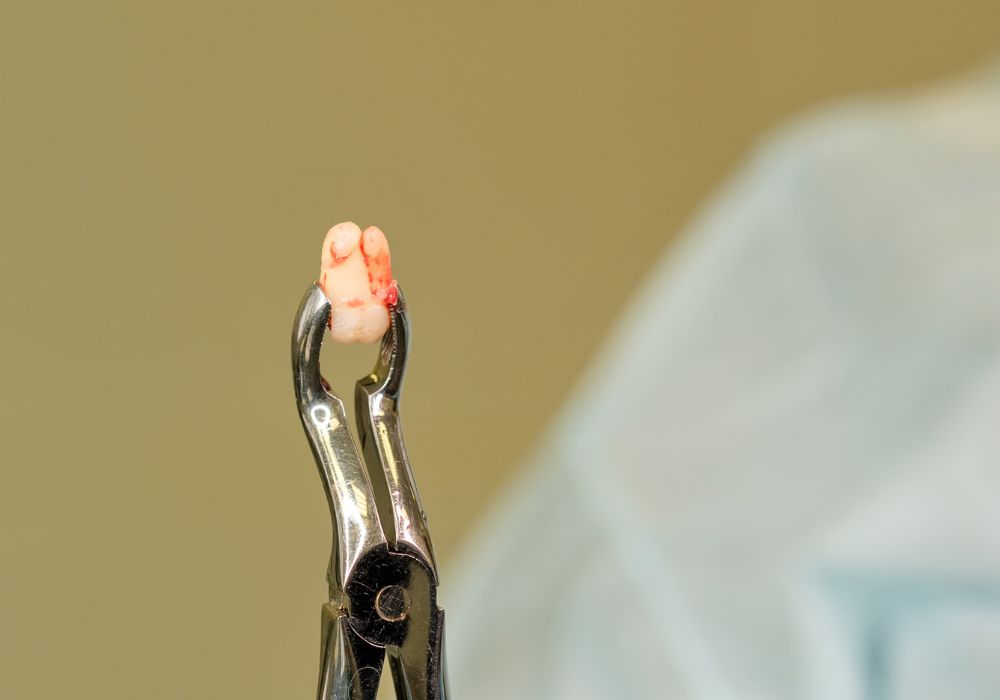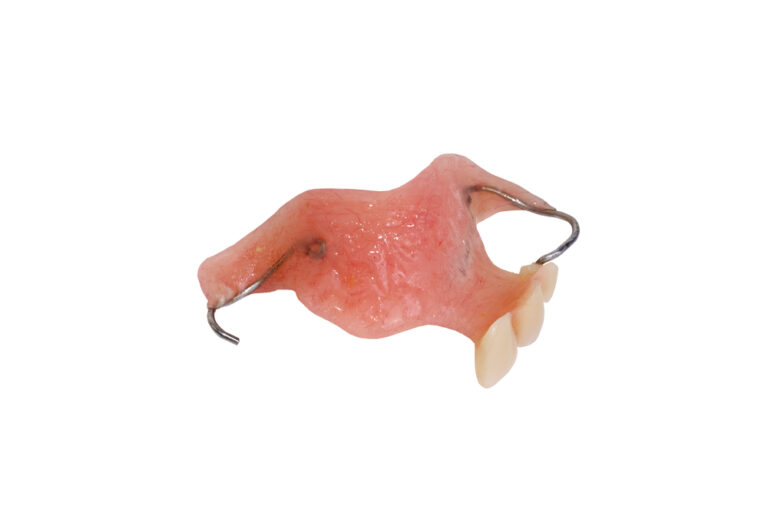Wisdom teeth are the third molars located at the back of the mouth. They usually emerge in adulthood, between the ages of 17 and 25. Many people need to have their wisdom teeth removed to prevent pain, infection and other oral health problems. But why are they called wisdom teeth?
The name “wisdom teeth” comes from the belief that these teeth are associated with maturity and experience. The term probably came as a translation of the Latin dens sapientiae. However, the actual reason why these teeth are called wisdom teeth is still unknown. In this article, we will explore what wisdom teeth are, why they are called wisdom teeth, how they develop and erupt, what happens when they become impacted, and when and why they need to be removed.
Key Takeaways
- Wisdom teeth are the third molars located at the back of the mouth that usually emerge in adulthood.
- The name “wisdom teeth” comes from the belief that these teeth are associated with maturity and experience.
- In this article, we will explore what wisdom teeth are, why they are called wisdom teeth, how they develop and erupt, what happens when they become impacted, and when and why they need to be removed.
What Are Wisdom Teeth?

Wisdom teeth are the last set of molars that grow in the back of your mouth. They are also known as third molars. Most people have four wisdom teeth, two on the top and two on the bottom. Wisdom teeth typically emerge between the ages of 17 and 25, although some individuals may never develop them at all.
Wisdom teeth serve the same purpose as other molars, which is to grind and chew food. However, because they are the last teeth to emerge, they often don’t have enough space to grow properly. This can lead to a number of dental problems, such as impaction, infection, and damage to adjacent teeth.
In some cases, wisdom teeth may grow in normally and not cause any problems. However, because of the potential for complications, many dentists recommend having them removed as a preventative measure. The decision to remove wisdom teeth should be made on an individual basis, taking into account factors such as age, overall health, and the position of the teeth.
Why Are They Called Wisdom Teeth?
Wisdom teeth are the third molars that usually emerge in the late teenage years or early adulthood. But why are they called wisdom teeth? The name “wisdom teeth” comes from the belief that these teeth are associated with maturity and experience. As children reach this age, they are beginning to gain new experiences that are associated with being wiser than they were as younger children.
Linguists believe that they are called wisdom teeth because they appear so late, at an age when a person matures into adulthood and is “wiser” than when other teeth have erupted. Science has added some credence to the idea that the third molar does indeed erupt when a person is “wiser.”
Another reason why they are called wisdom teeth is that they are the last teeth to emerge in the mouth. In ancient times, people did not have access to dental care, and so they lost their teeth at a much earlier age than we do today. By the time they reached the age when the wisdom teeth emerged, they were considered wise simply because they had lived long enough to have them.
In conclusion, wisdom teeth are called so because they emerge late, at an age when a person matures into adulthood and is “wiser” than when other teeth have erupted. They are also called wisdom teeth because they are the last set of teeth to emerge in the mouth.
Development and Eruption of Wisdom Teeth

Development
Wisdom teeth, also known as third molars, are the last set of teeth to develop in the human mouth. They typically begin to form during early adolescence, around 10-12 years of age, and continue to develop until the late teen years.
The development of wisdom teeth can vary greatly from person to person. Some people may never develop wisdom teeth at all, while others may develop one, two, three, or even four. In some cases, wisdom teeth may develop but remain completely hidden beneath the gumline.
Eruption
Wisdom teeth typically begin to erupt, or emerge from the gumline, between the ages of 17 and 25. However, as mentioned earlier, some people may never experience the eruption of their wisdom teeth, while others may experience it earlier or later than this typical timeframe.
The eruption of wisdom teeth can be a painful and uncomfortable process, as they often do not have enough room to emerge properly. This can cause them to become impacted, meaning they are trapped beneath the gumline and unable to fully emerge. Impacted wisdom teeth can lead to a variety of dental problems, including infection, gum disease, and damage to surrounding teeth.
In some cases, wisdom teeth may need to be extracted to prevent these problems from occurring. However, not all wisdom teeth require extraction, and a dentist or oral surgeon will typically evaluate each case on an individual basis.
Impacted Wisdom Teeth
Causes
Impacted wisdom teeth occur when the third molars are unable to emerge or develop normally due to a lack of space in the mouth. This can be caused by a physical barrier, such as other teeth, or when the tooth is angled away from a vertical position.
Symptoms
Symptoms of impacted wisdom teeth may include pain, swelling, and infection. Some people may also experience difficulty opening their mouth or difficulty chewing.
Treatment
Treatment for impacted wisdom teeth typically involves removal of the affected teeth. In some cases, antibiotics may be prescribed to treat infection. It is important to seek treatment promptly to prevent further complications.
If you are experiencing symptoms of impacted wisdom teeth, it is important to consult with a dental professional. They can provide a proper diagnosis and recommend the best course of treatment for your individual needs.
Removal of Wisdom Teeth

When Is It Necessary?
Wisdom teeth, also known as third molars, are often removed when they cause problems such as pain, infection, or damage to surrounding teeth. If the teeth are impacted, which means they are trapped beneath the gums, they can cause pain and swelling. In some cases, wisdom teeth can also cause cysts or tumors.
Procedure
Wisdom tooth extraction is a surgical procedure that is typically performed by a dentist or oral surgeon. Before the procedure, the patient is given anesthesia to numb the area and prevent pain. In some cases, general anesthesia may be used to put the patient to sleep during the procedure.
During the procedure, the dentist or oral surgeon will make an incision in the gum tissue to access the tooth. They may need to remove some bone tissue to fully access the tooth. Once the tooth is removed, the area will be cleaned and stitched closed if necessary.
Recovery
After the procedure, the patient will need to rest for a few days to allow the area to heal. They may experience some pain and swelling, which can be managed with pain medication and ice packs. The patient should avoid drinking through a straw, smoking, or eating hard or crunchy foods for a few days after the procedure to prevent complications.
The stitches will be removed after a few days, and the patient should continue to clean the area with saltwater rinses. It may take a few weeks for the area to fully heal, and the patient should avoid strenuous activity during this time. Overall, wisdom tooth extraction is a common and safe procedure that can help prevent dental problems and improve oral health.
Frequently Asked Questions
What are the teeth called wisdom teeth?
Wisdom teeth, also known as third molars, are the last set of teeth to develop in the human mouth. They are located at the back of the mouth, behind the second molars.
Does everyone have wisdom teeth?
No, not everyone has wisdom teeth. Some people may have fewer than four, or none at all. The absence of wisdom teeth is a genetic trait that can be inherited.
How many wisdom teeth are there?
Most people have four wisdom teeth, two on the top and two on the bottom. However, some people may have fewer or more than four.
Why are wisdom teeth vestigial?
Wisdom teeth are considered vestigial because they serve no functional purpose in the human mouth. Our ancestors, who had larger jaws and needed more teeth to chew tough, raw foods, had larger wisdom teeth. As our diets have evolved, our jaws have become smaller, and we no longer need these extra teeth.
When did wisdom teeth get their name?
Wisdom teeth were first referred to as such in the 17th century by the English physician and philosopher Sir Thomas Browne. The name was coined because these teeth typically appear in the late teens or early twenties, when a person is said to be gaining wisdom.
What was the original purpose of the wisdom teeth?
The original purpose of wisdom teeth was to help our ancestors chew tough, raw foods. However, as our diets have evolved, our jaws have become smaller, and we no longer need these extra teeth. As a result, wisdom teeth have become vestigial and often cause problems when they try to emerge in the human mouth.






